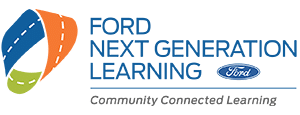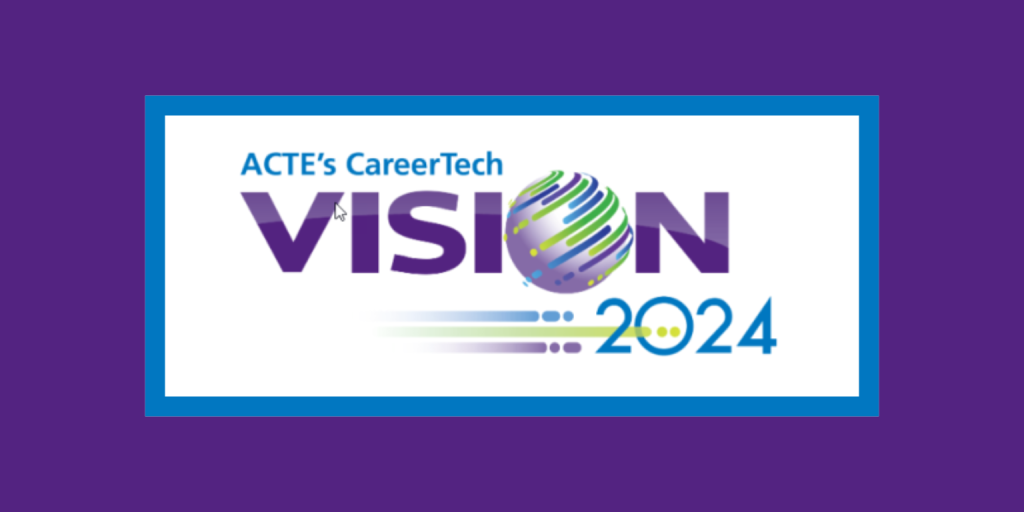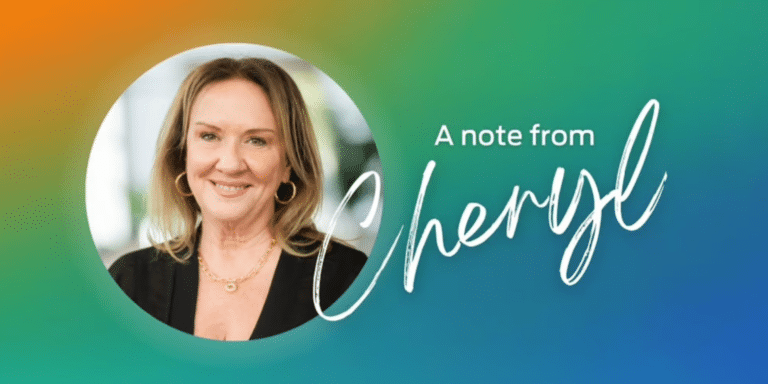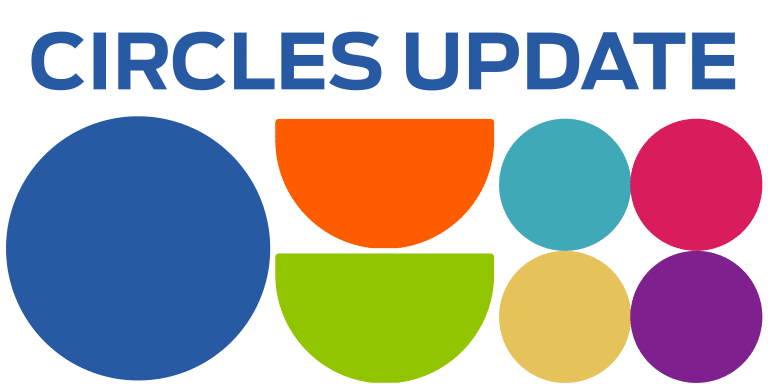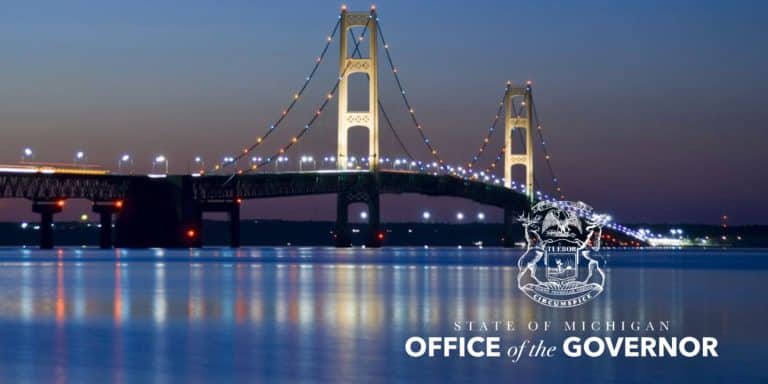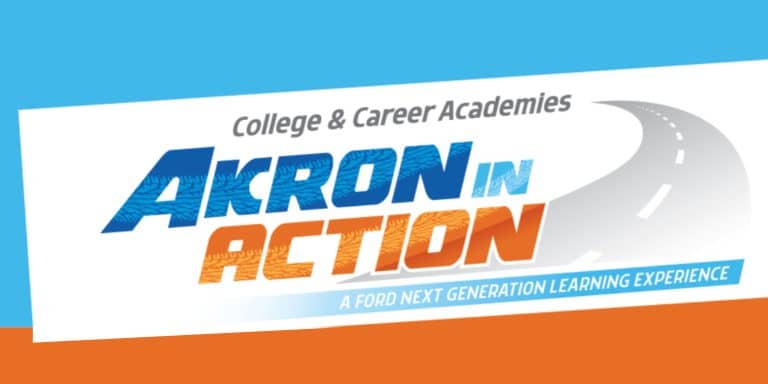This year’s ACTE VISION conference in San Antonio brought together educators, administrators, and community leaders to share best practices and innovative strategies in Career and Technical Education (CTE). Representing Ford Next Generation Learning (Ford NGL), our team, including Thao King, Beth Grzelak, Scott Palmer, Marc Hill, and I (Cheryl), was proud to join forces with four of our communities and present in the Career Academy section. The sessions highlighted how intentional partnerships and aligned strategies are transforming education and preparing students for success. The presentations were so packed with useful information and ideas that plans are in the works to host a webinar later this year featuring these communities and presentations, so stay tuned! You won’t want to miss it!
The following is a brief overview of those powerful sessions and highlights of the key takeaways.
Professional Skills: A Community-Driven Evolution to Measuring the Intangibles
Racine, Wisconsin
Ford Next Generation Learning (Ford NGL) communities in Wisconsin brought the heat to the ACTE annual conference this week in San Antonio! Racine Unified School District shared their journey in developing a professional skills rubric that is meaningful and user-friendly for students, teachers, and business partners. Both Michael Lynch, Workplace Learning Coordinator for Washington Park High School, and Al DeBaker, Executive Director of Academies and Transformation shared lessons learned from the initial rollout. A few highlights from the session:
- The Why Behind Professional Skills –
- College and career-ready (critical skills: the research is clear)
- Evidence-based learning (separating academic skills from behavior)
- Provides structure and a common language (taught, practiced, discussed, and assessed)
- The rubric was collaboratively developed by Student Services, Curriculum & Instruction, Workplace Learning, Academies of Racine (AoR) Steering Committee, AoR pathway teachers, and focus groups.
- Students self-assess and teachers assess using the Professional Skills Rubric during project-based learning, worksite visits/industry tours, job shadows, and anytime during the school day!
They also provided the rubric developed for the assessment of professional skills.
Local Business Partnerships for Student Success in The Academy Model
Beloit, Wisconsin
Emily Pelz, High School Principal, of Beloit Memorial HS, and Deb Prowse, Retired Career Academy Coach, Beloit Memorial HS (BMHS) discussed a program focused on personal development and character building while simultaneously offering students opportunities to explore various career options within skilled trades through job shadowing and mentoring. They shared how fostering partnerships with local businesses cultivates character-driven mentoring cultures. A few highlights from the session:
Don’t look for businesses that say, “I just need a worker.” Look for businesses that:
- Build a career pathway for their workers
- Care about kids and next-generation
- Desire to create a legacy that lives beyond current leadership
- Recognizes the benefits of a mentoring culture
- Committed to growing diversity in the workforce
- Desire to empower youth in their role in the future workforce
BMHS students value experiences that are hands-on, offer mentoring, are authentic, build trust, and are rigorous/challenging.
The most important thing the school can do is send students who are ready. Some students are not ready YET. They will be, but they are not yet, and one of the things that can damage a partner relationship is sending students who are not ready. However, students will not just automatically be ready without the school’s support.
Collaborative Success: Maximizing Impact through Strategic Partnerships and Data-Driven Metrics in a Career-Themed Academy Model
Knox County, Tennessee
Shannon Jackson and Windy Clayton from Knox County Schools shared how they are aligning partner priorities with their 865 Academies to achieve sustainable educational outcomes. This session explored strategies for forging effective partnerships, establishing shared visions, and leveraging key performance indicators to create shared ownership and accountability. A few highlights from the session:
- The 865 Academies Steering Committee was unsure that they were sharing the right metrics & the metrics they were sharing took a lot of context to understand.
- They felt strongly that metrics were needed to transform their culture and systems (Ford NGL Strand 2) and the community connections (Ford NGL Strand 3).
- How did 865 Academies address this challenge?
They began a conversation about the need for different metrics at the January Steering Committee retreat. - They launched a small task force (The name “task force” was chosen deliberately as they are, by definition, finite in length, as opposed to working groups which can exist for an undetermined length of time).
- The task force presented a proposal at the March (to workshop the proposal) and May Steering Committee meetings.
- The Steering Committee accepted the final proposal at the May meeting.
- The metrics were communicated at the end of the school year for the next school year.
- The community began the following school year with five Priorities and Key Performance Indicators (KPIs) for each Priority.
A Systems Approach to K-12 Profile of a Graduate Implementation
Christian County, Kentucky
Dr. Kadi Ralston, Secondary Instructional Supervisor of Christian County Public Schools and Megan Kem, CCHS Assistant Principal discussed how establishing strong partnerships between community and district leaders created community-wide consensus on Profile competencies and impacted the successful implementation of K-12 Profile of a Graduate. They shared the structures put into place for students to demonstrate the competencies and for teachers to facilitate vibrant learning experiences that provide opportunities to acquire those competencies. A few highlights from the session:
- “People do what you inspect rather than what you expect”, so CCPS monitors its “tights” (strong expectations) via quarterly monitoring meetings.
- Every teacher teaches Portrait of a Graduate (PoG) competencies through vibrant learning experiences.
- All students experience an exhibition (5th grade) or a defense (8th & 12th grades).
- CCPS piloted defenses with a set of 12th grade “early adopters” student exhibitors who were videotaped to help teachers and staff to prep, but also to help students prep and the early adopters also served as mentors to other students.
- CCPS was able to modify the defense experience for Special Ed and 504 students.
- CCPS is working toward a semester-long Senior Seminar to prepare for Senior Defense.
A Community-connected Partnership: Strategies for Real-World Learning
Ford Next Generation Learning (Ford NGL)
Dr. Beth Grzelak of Ford NGL led a 3.5-hour workshop on Ford NGL Community-Connected Learning and shared how to implement standards-based, industry-approved, case-based learning alongside meaningful work-based learning experiences. It was a great session with a set of mostly CTE administrators and workforce development folks ready to amp up, align, and create strategies for their work-based learning and partner engagement! Wish you had been there? We got you covered! We will be sharing elements of the session with you in 2025!
Ford Law: Driving Equity With CulturaL Responsiveness and Work-Based Learning
Henry Ford Learning Institute (HFLI)
I (Cheryl) had the chance to attend the above session at ACTE VISION 2024 and wanted to share information about this incredible opportunity available to Ford NGL and other school districts. Debi Parizek, Executive Director of HFLI discussed how people of color are underrepresented in the legal profession. Attendees how Ford LAW Career Academy blends culturally responsible principles, placed-based learning, and intentional work-based learning alongside practicing lawyers and judges to excite black and brown students about law careers. The goal of this curriculum (developed by HFLI and Ford Motor Company’s legal team) is to prepare students to become impactful lawyers who will counter the historical marginalization of non-white individuals.
Interested in learning more about Ford LAW? Connect with HFLI directly via their contact form at: https://learn.hfli.org/contact.”
